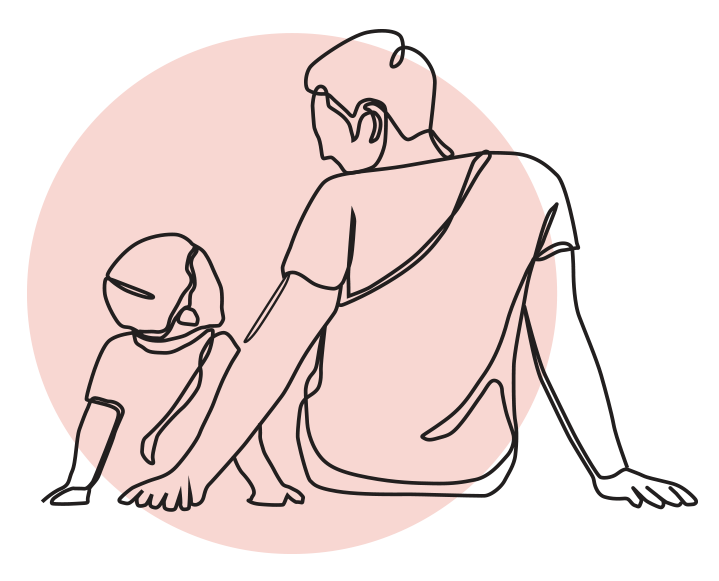Counselling in Schools
‘The Counselling provision at our school is now excellent. This is due to Chloe’s understanding of the needs of pupils, parents and the school as an organization. I would whole-heartedly recommend ‘Child in Time’ to head-teachers considering their own counselling provision.’
Head-teacher of Woolmore School in Tower Hamlets
Just as every child deserves an attuned response to their particular need, we recognise that each school might be looking for a different kind of therapeutic counselling provision. Outcomes for long-term 1:1 therapy are extremely positive but we can also set up short-term, group and drop-in sessions. The personal service we offer means that we can build the appropriate service for your school and match you up with a therapist whose professional background will best fit the needs of your students.
Where to Start
Whilst most schools see the value of professional emotional support, it can be difficult to know where to start. Find out how to take the first steps. If you already offer counselling but would like to develop the service please contact chloe@childintime.com to discuss the possibilities.
Costs
We keep costs as low as possible with daily rates starting at £280. Rates vary according to the experience and qualifications of your therapist.
Child Protection and Safe-guarding
Child in Time is an organisational member of the British Association for Counselling and Psychotherapy (BACP). Each of our counsellors/therapists are committed to caring for children and young people and protecting them from harm. They are fully qualified and have been trained by organisations offering recognised accreditation for counsellors/therapists, including two leading accrediting bodies: the United Kingdom Council for Psychotherapy (UKCP) and BACP. Many of our therapists are also registered with the Health and Care Professions Council. All counsellors carry professional indemnity insurance and have Enhanced Disclosures from the Criminal Records Bureau (DBS). Our counselling practice is in accordance with the ethics and Code of Conduct of our training organisations, or accrediting body, and with statutory legislation. We work in co-operation with the school’s Child Protection Policy, following Area Child Protection Committee guidelines.
Confidentiality
Some schools are concerned about the confidential nature of counselling. We will not share details of the sessions but we are able to give broad themes and outlines in order to discuss ways to support the child with staff members. In effect there is no such thing as absolute confidentiality when working with young people as child protection always takes precedence over normal confidentiality codes. In the initial contract this will be made clear to the child. Should a counsellor think that a child/young person is at risk of significant harm, they will attempt to gain the child’s permission before reporting it to your schools designated link person and/or child protection person.
Whole school benefits
Setting up a school counselling service provides a healthy unstigmatised model of emotional support. Lunch-time drop-in services could reach a larger number of students without the commitment of long term therapy, and group work can increase social cohesion. Staff benefit from the opportunity to discuss children who often put huge pressure on them with a professional from a different field. There are many more ways in which the whole school can benefit through a ripple effect as deep as it is wide.
GO
Start-up Pack
Our start up pack includes guidance on:
- Setting up a counselling room and suggested resources.
- The referral process including referral form.
- Contacting parents including template letter requesting consent.
- Types of problems or concerns and common indicators.
- Information for staff and what to expect when a child starts counselling.
- Information for children/young people to be adapted for class discussion.
10 Steps to go
- Room: Allocate a small room, preferably not in a busy area where the session won’t be disturbed. If the room has a dual purpose it will need to be re-set by your therapist whenever they arrive. It then becomes a safe place for the child, predictable and welcoming. It is as if it belongs to them.
- Appoint a link person in the school: Consider whether they will be the SENCO or the person responsible for child protection. Make sure they will be in the same day as the therapist.
- Meet with Chloe at Child in Time: Discuss how many days and what kind of service you might need. Long-term therapy has extremely positive outcomes and would constitute a minimum of two terms. Consider a lunch-time drop service in to reach more children.
- Meet your therapist and receive start-up pack: Order resources for room with guidance from your therapist. This is not a huge out-lay. Discuss children you have in mind.
- Referral process begins: Introduce the service to the staff. Referral forms completed by members of staff and given to link person to add to waiting list (consider whether to include self-referrals and/or parental referrals).
- Evaluation and Prioritising: Meeting between Link Person/any other relevant staff to decide on who is next to be seen.
- Parental Consent and Meeting: Letter of consent is signed by parent/carer and they are invited in for meeting with counsellor (depending on age of young person).
- Take-up: Child/young person is offered counselling by teacher/member of staff they are comfortable with.
- Pre-session Observation/Teacher Meeting (Primary only): Observation of child in class by counsellor. Meeting between counsellor and teacher to discuss child. Child is given note with details of time and place in advance of session.
- First session: Child is expecting counsellor when they are collected (Primary) or young person makes their own way to the allocated room with prior permission to leave their class (secondary).


